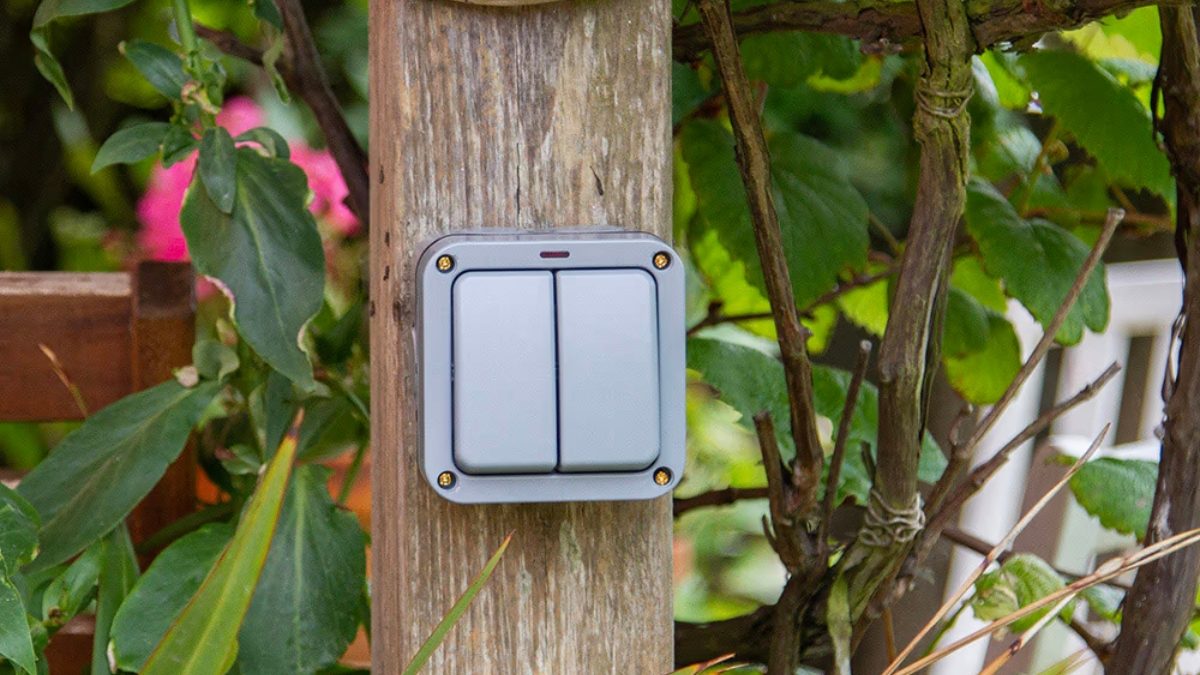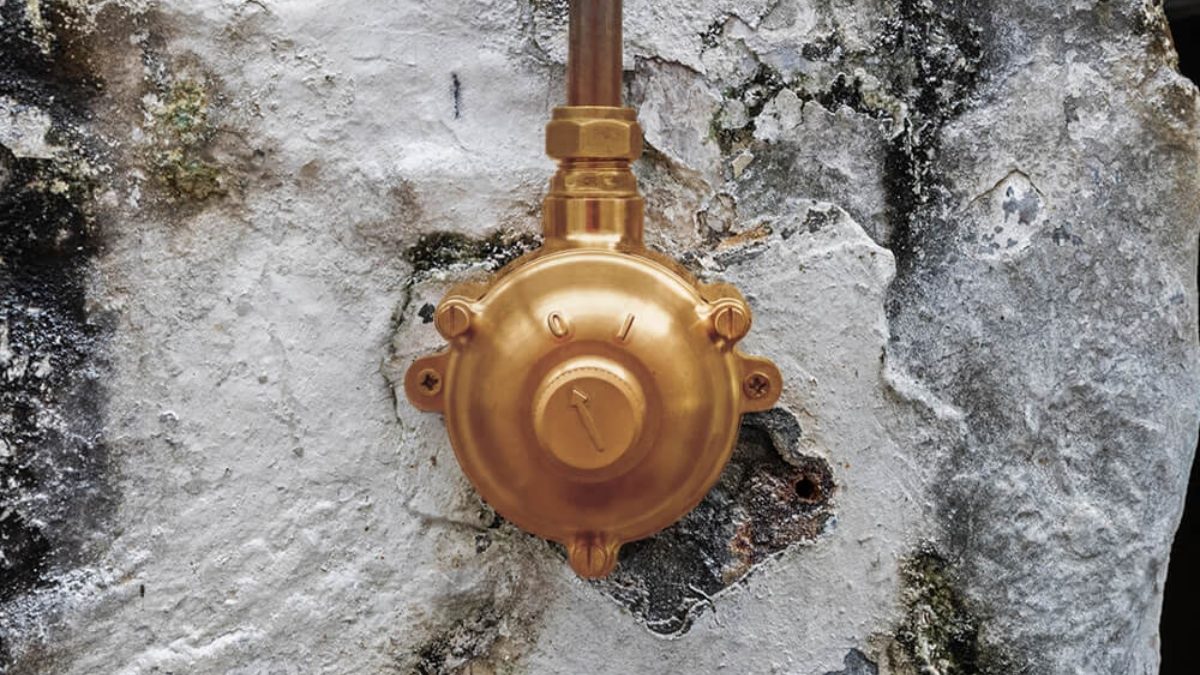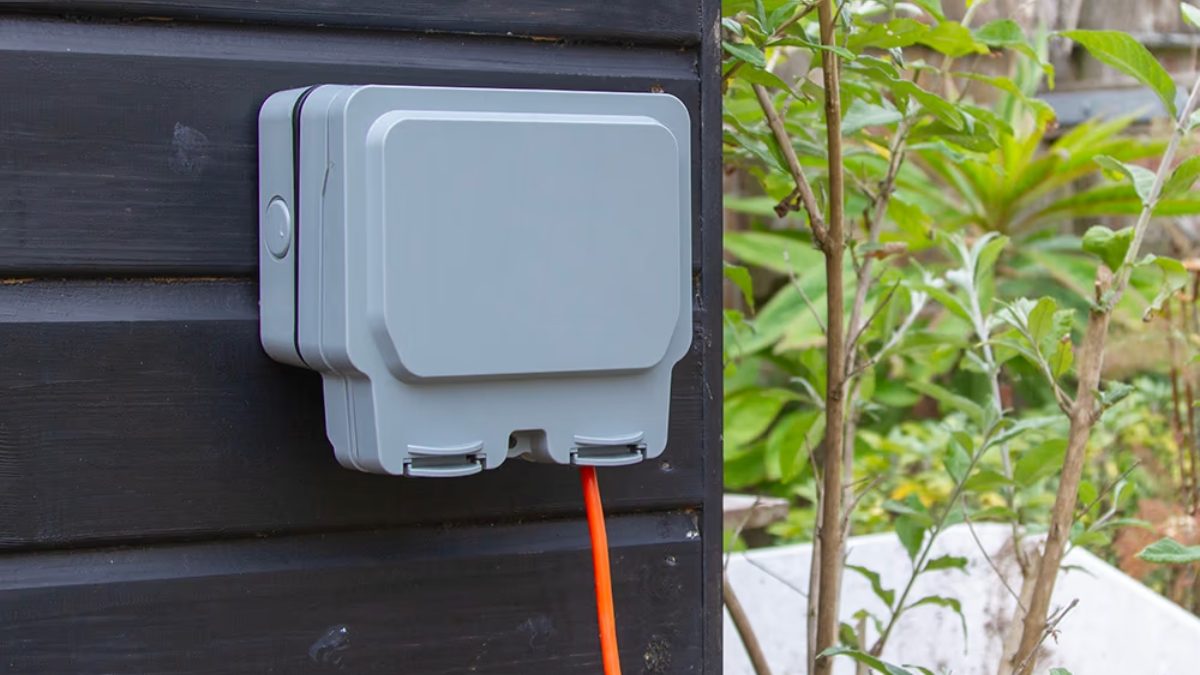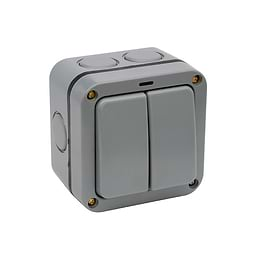Outdoor Sockets and Switches
Outdoor Sockets and Switches

Outdoor sockets are a game-changer for UK homeowners who want to make the most of their garden. They are essential for powering garden lighting, security lights, water features, and appliances such as lawnmowers and leaf blowers, and it’s imperative that these power points are safe and reliable in various weather conditions. In this guide, we’ll explore what you need to look for when buying outdoor sockets and switches.
Key Considerations When Buying Outdoor Sockets and Switches
IP Rating: Waterproof and Dust-proof Standards
UK weather is notoriously unpredictable, which makes it crucial to install IP-rated weatherproof sockets for outdoor use. But what does IP rated actually mean?
The Ingress Protection rating, most commonly known as IP rating, is critical for outdoor electricals. This two-digit number shows protection levels against solids (dust and debris) and liquids (rain and standing water).
In the UK, the minimum recommended IP rating for outdoor is IP44 when placed in a sheltered location such as a covered porch, but higher ratings offer better protection and are more suitable for uncovered areas. Here’s a quick overview:
- IP44: Protects against splashes from any direction and solid objects larger than 1mm. Suitable for areas with shelter such as a covered porch.
- IP65: Fully dust-tight and protected against low-pressure water jets. Ideal for open areas exposed to rain or cleaning.
- IP66: Dust tight and resistant to high-pressure water jets
- IP67: Dust tight and resistant to high-pressure water jets and temporary immersion
- IP68: For permanent immersion in water; a good waterproof rating for up to 1m of immersion, though rarely needed for standard garden use.
For more information on the IP ratings, visit our blog 'IP Rated Lighting Guide'
Material Durability

Look for sockets and switches made of robust materials like UV-resistant polycarbonate, which prevents cracking and discolouration due to sun exposure.
Stainless steel, aluminium, and even brass may be suitable for aesthetic and durable installations. Ensure outdoor sockets have weatherproof covers that seal securely when not in use. These prevent accidental exposure to moisture or tampering. Some designs will include a screw lid with a rubber seal.
Number of Outlets and Features

Single vs. Double Sockets: Consider the number of devices you need to power simultaneously.
Smart Features: Wi-Fi-enabled sockets let you control devices remotely via apps.
USB Ports: Useful for charging small devices without an adapter.
Ensure the socket is compatible with the existing circuit and complies with UK safety standards.
Outdoor installations often require Residual Current Device (RCD) protection for safety.
Tips for Maintaining Outdoor Outlets
- Regularly inspect for wear, cracks, or corrosion.
- Keep covers clean to ensure a proper seal.
- Replace damaged units immediately to avoid safety risks.
By choosing the right IP rating and features, you can ensure your outdoor sockets and switches provide long-lasting and safe power for your garden or outdoor activities.
Do I need an RCD for my outdoor socket or switch?
An RCD (Residual Current Device) is a safety device designed to protect against electric shocks and reduce the risk of electrical fires. It works by detecting any imbalance in the electrical current, for example as when electricity is flowing through an unintended path (due to faulty wiring or even through an electric shock in a person), and shuts off the power almost instantly.
For outdoor installations, RCD protection is essential because outdoor sockets and switches are more exposed to moisture, dirt, and accidental damage, all of which increase the risk of electric shock. In the UK, current regulations require RCD protection for most outdoor electrical installations, particularly when powering portable equipment like lawnmowers, hedge trimmers, or pressure washers. If your fuse box doesn’t already include RCD protection, you should install outdoor sockets with built-in RCDs or use a plug-in RCD adaptor for safety.
We hope you have found this guide helpful,
[related_products is_auto_added="1"]









